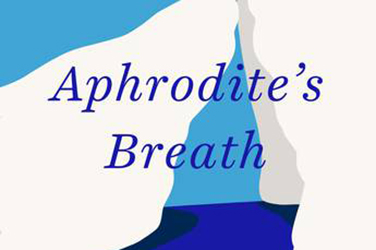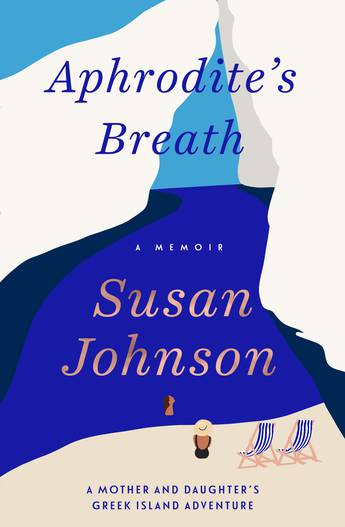
- Free Article: No
- Contents Category: Memoir
- Review Article: Yes
- Article Title: To Kythera
- Article Subtitle: The difficult art of running away
- Online Only: No
- Custom Highlight Text:
'Who hasn’t longed to run away?’ asks Susan Johnson at the beginning of this memoir-cum-travel book about her time on the Greek island of Kythera. It is a question that invites a show of hands. Fewer people, however, might be inclined to bring their mothers with them.
- Featured Image (400px * 250px):

- Alt Tag (Featured Image): Jacqueline Kent reviews 'Aphrodite’s Breath: A memoir' by Susan Johnson
- Book 1 Title: Aphrodite's Breath
- Book 1 Subtitle: A memoir
- Book 1 Biblio: Allen & Unwin, $34.99 pb, 367 pp
- Book 1 Cover Small (400 x 600):

- Book 1 Cover (800 x 1200):

Barbara hates the house Johnson has found for them. She struggles with the language – Johnson admits that her own grasp of Greek is rudimentary at best – is wary of the neighbours and unhappy about the food. And the weather is awful. They have come to Kythera not in glorious island sunshine à la Charmian Clift but during a freezing winter, a time of blustery winds, incessant rain, and gloomy, lowering clouds. Johnson gamely makes the best of it all, heading off for walks around the island despite mud and bad roads. Her mother huddles at home over a largely useless heater.
Fortunately, Susan Johnson is too adroit a writer for this to be a saga of unrelieved mutual resentment. Summer eventually comes, they find a better house, they make friends. More importantly, just when the reader has been wondering why on earth Johnson asked her mother to accompany her, she begins to show the bond between them. Mother and daughter have enjoyed previous holidays together; they have private jokes. Barbara has been unswervingly loyal to her daughter through Johnson’s two divorces and years of expatriation, and has never failed to support her as a writer. Johnson says, ‘I don’t think Mum’s lack of curiosity about Kythera was the product of her advanced age [Barbara is eighty-five] or even a failing. I thought she was a citizen of that happy republic for whom their particular home is the only home imaginable.’
Johnson can be very funny about her own determination to embrace life on Kythera versus her mother’s lack of interest in its people and its history. She also makes it easy to understand both attitudes. It is not difficult to see how a self-contained woman of eighty-five, stranded in a strange place without language, without landmarks of life that she recognises, could easily be exasperated by a daughter who remains doggedly romantic in the face of such problems as electricity failures and malfunctioning sewerage; one who has been deprived of her maternal authority by a daughter who calls the shots. And what’s nice, too, is that Johnson doesn’t let herself off the hook. She’s candid about her own faults and shortcomings, and her own frankness is never preening.
Part of Johnson’s reason for being on Kythera is to investigate the tragic life story of Rosa Kasimati, the Greek-born mother of the writer and translator Lafcadio Hearn, who was separated from her family for years and who never found a place for herself. Presumably Johnson wants to explore themes of exile and longing. This is interesting enough and it adds some depth, but it feels tacked-on and Rosa the ‘lost invisible’ never really comes to life. Johnson does explore what it means to be in a place without language, deprived of more than simply words, but she always brings it back to her own experience.
Johnson’s writing really takes off when she describes the island. Along with the evocation of sky and sea and landscape she writes about something that travelogues about Greek islands never mention: the number of houses with ‘rain-swollen doors you could push open, kitchens with hand-stitched curtains rotting at the windows’ – the abandoned and neglected houses scattered over the island. These are the places where the musty air is heavy with the silent presence of people who have left in search of a better life – the untold stories of the Greek diaspora.
But sustained introspection is not Johnson’s business here. Despite her often spiky subject matter – and the sadness of the book’s ending – her writing is always engaging. There is the odd gracefully evocative passage that means less than the sum of its parts – an occasional hazard of literary writing – but these are rare. One minor cavil is the rather clumsy treatment of Greek words in the text: first the script, then the phonetic pronunciation, followed by the meaning in English.
But these are small points. Johnson’s delineation of the complications of the mother–daughter bond is subtle and perceptive, and she writes with a nice, airy buoyancy throughout. It’s a book of many pleasures.


Comments powered by CComment